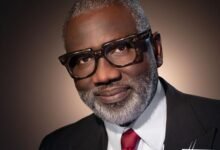WINNER’S EDGE: SELF-HONESTY
The first and most important element of that critical attitude for success that makes up the Winner’s Edge is self-honesty. Self-honesty is the ability to step back from the canvas of life and take a good look at yourself as you relate to your environmental, physical, mental, and spiritual world. Self-honesty is the ability to accept yourself as a unique, imperfect, changing, and growing individual and to recognize your own vast potential as well as your limitations.
One of the most important aspects of self-honesty in the Winner’s Edge is that winners take full responsibility for determining their actions in their own lives. They believe in cause and effect and have the philosophy that life is a “do-it-to-yourself” program.
Many people refuse to face the truth in the mirror of their lives on a daily basis and prefer to hide behind the belief that fate, luck, biorhythm, or, possibly, their astrological sign have shaped the outcome of their lives. These people, who feel that life is mostly determined by circumstance, predestination, or being at the right place at the right time, are more likely to give in to doubt and fear. Those who cannot make up their minds for fear of making the wrong choice, vacillating in indecision, simply do not achieve their goals, a requisite for success. Rather, they take their place among the rank and file, trudging along in mediocrity.
People who are aware that they exert control over what happens to them in life are happier and are able to choose more appropriate responses to whatever occurs. All individuals are what they are and where they are as a composite result of all their own doings. It is true that we are all God-created, but we are also “self-molded.” Although our innate characteristics and environment are given to us initially, the decisions we make determine whether we win or lose our particular game of life.
GOD DEALS, YOU PLAY
Life is often likened to a game of cards. Each player must accept the cards life deals him or her. But once they are in hand, they alone must decide how to play the cards in order to win the game. John Erskine puts it this way: “Though we sometimes speak of a primrose path, we all know that a bad life is just as difficult, just as full of work, obstacles, and hardships, as a good one. The only choice is the kind of life one would care to spend one’s efforts on.”Life is not always perfect. Like a road, it has many bends, ups and down, but that is its beauty.
WHO IS IN CHARGE?
As a first step in developing the aspects of self-honesty in the critical attitude for success, we need to ask ourselves the question: Are you steering your ship, or are you a victim to the ill or fair winds of fate? Are you a puppet dangling on the strings of your heredity and environment? Are there a lot of things you have to do in life that have been forced upon you? People who feel they have to do things usually forfeit many available options and alternatives and lose control of their lives in the process.
According to Dr. Denis Waitley, there has been a positive breakthrough in psychology in recent years, which was first led by Dr. Abraham Maslow, prior to his death. This new movement, which is optimistic about human growth and potential and looks forward instead of backward, is commonly referred to as “responsibility psychology.” It holds that irresponsibility and valuelessness lead to abnormal behavior, neurosis, and mental deterioration. Treatment of individuals suffering from these symptoms includes showing them that they need not be hung up on the past, but they are responsible for their present actions as well as their future behavior.
MAKE IT HAPPEN; DO NOT LET IT HAPPEN
The winning human being realizes that everything in life is volition—even being alive. Everything is something I DECIDE TO DO, and there is nothing I HAVE TO DO. You do not have to go to work, pay taxes, have babies, or even get up in the morning. You decide to do things because they are profitable to you and the best choice among the alternatives available to help you reach your goals.
People who have to do things are irresponsible. They are dishonest and are not in control of their lives. They are puppets caught in the habit of letting life happen to them. Losers let it happen; winners make it happen.
John Gardner believes that winning individuals do not leave the development of their potential to chance. They pursue it honestly, systematically, and look forward to an endless dialogue between their potentials and the claims of life—not only the claims they encounter but the claims they invent. Daily, thousands of individuals are finding that there is a bright new world out there to be discovered and are demonstrating that “we do not know we have been imprisoned until we have broken out.”
BEING SELF-RESPONSIBLE
Dr. Waitley believes that we are not only victims of habits. In a very real sense, each of us becomes a prisoner of hundreds of restrictions of our own making.
For example, teenagers have a strong need to conform to the standards of their group. While they may feel that their special way of grooming is an act of independence, on the contrary, their styles and activities adhere very strictly to the peer code. Those who refuse to be responsible and honest for their own deeds, looking to others for their behavior cues, have not reached maturity. Unfortunately, many adults spend their entire lives at this level of immaturity.
As we grow into adulthood, we make decisions that progressively narrow our opportunities and alternatives. We seek only a few friends out of the thousands with whom we rub elbows, usually people with whom we agree, thus limiting our input of fresh ideas. We choose our educational level, which in turn determines to a great extent our jobs and associates. From day to day, comfortable in our safe, established way, we seek the paths of least resistance. The responsible people look at the shackles they have placed upon themselves by apathy and lack of imagination and, in a moment of truth, decry their predicament. Making a declaration of independence, they assert their option to choose and assume their rightful role of personal honesty.
Margaret Mead calls personal honesty and responsibility our most important development and the notion that we are the product of our environment, our biggest sin. “Without individual responsibility, there can be no enduring liberty or freedom in any society. We will be free only as long as we can use freedom responsibly.”
For every cause, there will be an effect nearly equal in intensity. If we make good use of our minds, skills, and talents, these will become apparent in our outer lives. And, if we make the best use of our time, this, too, will give us a great advantage, for we know that scarcely one in a thousand individuals ever puts his or her time to anywhere near its potential good use.
This is being true to ourselves—taking control, accepting responsibility. In the final analysis, we are the only ones from whom we can steal time and accomplishment. “We are the only true field judges in our own daily games in life.”
In developing our critical attitude for success, our self-honesty needs to tell us that this is the best time to be living in society. There is more opportunity today and in our foreseeable lifetime than in any other time in history; and the prospects are still looking good.
BY CAPTAIN SAM ADDAIH
RTD.





